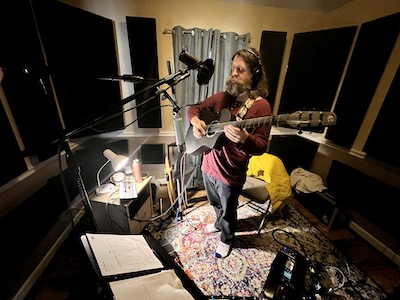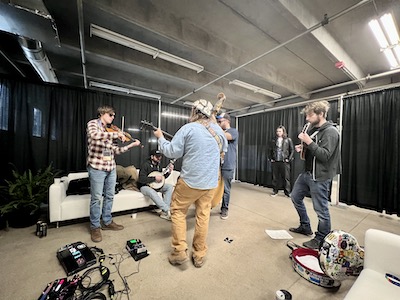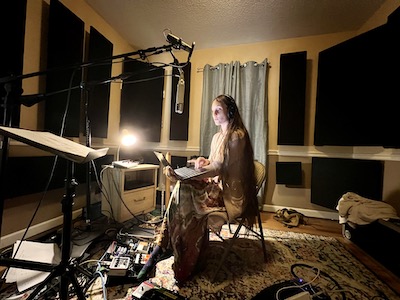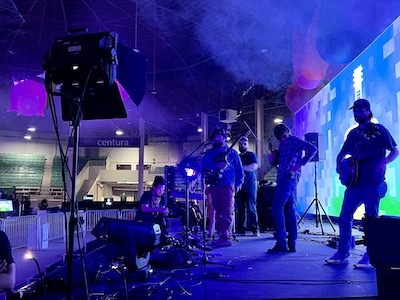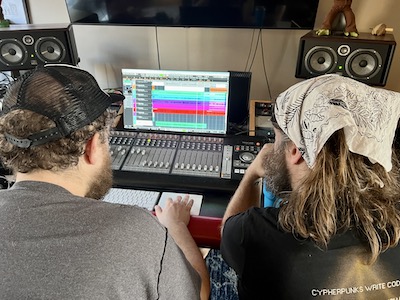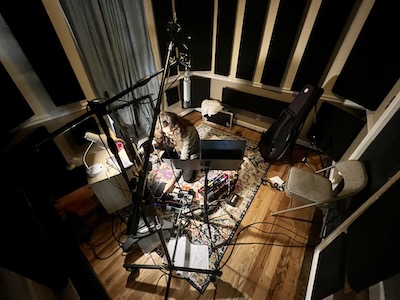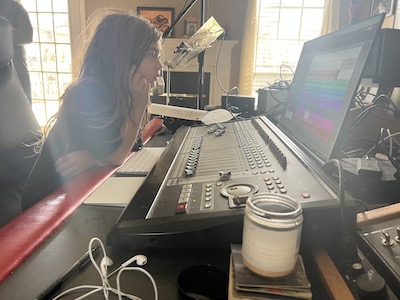Questions of Varying Frequency
What's the difference between a duck?
One leg is both the same.
Why release this record using blockchain tech instead of the orthodox industry method?
Making music un-free hasn't made musicians un-poor. So we're carving out a way to release free, IP-unencumbered music - which is after all the core of traditional music - and reward fans who choose to pay for it.
So how did it work?
After mastering, the record and cover art were encrypted and made available for download via IPFS and bittorrent - you know, those tools that deal economic ruin to musicians.
The Revealer contract was then configured to facilitate decyrption of the record after 10ETH had been contributed (more on that below).
Now released, the record is in the public domain, free to download and use under a creative commons license.
What is Revealer exactly?
Revealer is a decentralized application that allows you to reveal a secret to the world via a commit-and-reveal scheme.
It is built on top of  Threshold Network., and a few of the contributors to Revealer are also long-time contributors to Threshold.
Threshold Network., and a few of the contributors to Revealer are also long-time contributors to Threshold.
At the cryptological layer, there's nothing about Revealer that is specific to the arts. However, when it became obvious that conditionally revealing a committed-to secret was possible because of advances at Threshold, it seemed that Creative Commons-licensed art was the first obvious use case.
It's fairly simple: using Threshold Access Control, a symmetric key is encrypted. A smart contract is deployed such that a boolean flag is flipped to true once a 'threshold' of contributions are made. The nodes on the Threshold Network watch for the flipping of this flag, and only then participate in their typical multi-party computation to reveal the symmetric key.
At that moment, whatever the artist has encrypted with that key (in this case, a bluegrass record) becomes public.
What is an Artifact?
Revealer Artifacts are ERC-721 tokens that are minted after contributions are closed, and awarded to everyone who contributed. They are serialized, with lower numbers going to higher contributors (ie, top contributor gets #1, then #2, etc). We plan to mint them on Gnosis chain for Revealer 1, within a few weeks of the reveal.
Everyone who contributed above the 0.1eth minimum will receive an Artifact, sent to the address from which they contributed.
The top 10 contributors will have their Artifact bound to one of the paintings by Nashville artist Sophie Clark.
Part of the medium-term vision of Threshold Network is to use NFTs to unlock access to content, and these Artifacts are intended to be used for that purpose.
So does that mean there are no royalties for Revealer projects?
Certainly we hope for the concept of royalties to evolve beyond what it has become.
We want the moment of listening to music to be free, permissionless, and unencumbered by industry interests.
On the other hand, for Revealer 1 (this project - the Vowel Sounds record), we imagine Artifact royalties as follows:
- The initial canonical owner of an Artifact is the address from which the respective contribution was made.
- If an Artifact is transfered to another address, the canonical owner remains the initial address.
- In order to transfer canonical ownership status, a royalty-ish instrument (we don't have a name for this yet) will be paid to the initial contract.
- Whatever benefits Justin decides to confer to holders of the Artifacts, whether in-person or online, will be conferred only to canonical owners.
This way, Artifacts can still be backed up on hardware wallets, bought and sold in open markets, etc., but the artist will still receive some of the market value of any transaction of the Artifact (the long-term value of which will presumably be driven in part by the artist's commitment to Artifact hodlers).
That's all fine, but what if I release my record on Revealer, and then once Revealed, I (or anyone) puts it on a streaming platform - can I get paid?
The short answer is "yes", but the long answer is that we need to do some research to understand how to license this. Hopefully our friends at archive.org or the EFF can help.









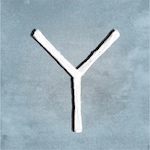
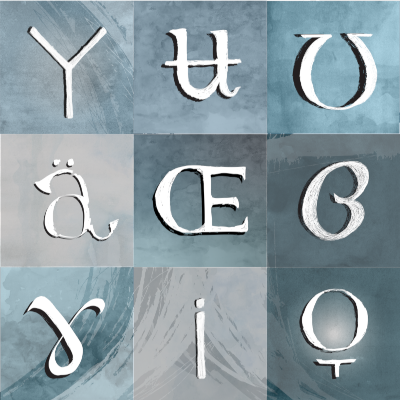
 Threshold Network.
Threshold Network.
![]()
